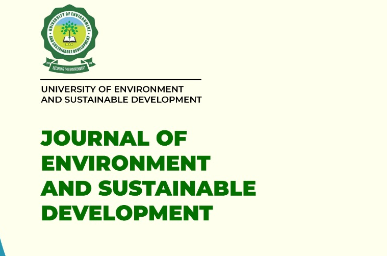The University of Environment and Sustainable Development (UESD), Somanya, has launched its maiden Journal titled: ‘Journal of Environment and Sustainable Development’ (JESD).
The seventy-five-paged journal which has designs with the official colours of the University, was launched by the Vice-Chancellor of the University, Prof. Eric Nyarko-Sampson at the Auditorium of the Multipurpose Building was attended by Senior Members (Teaching and Non-Teaching) of the institution.
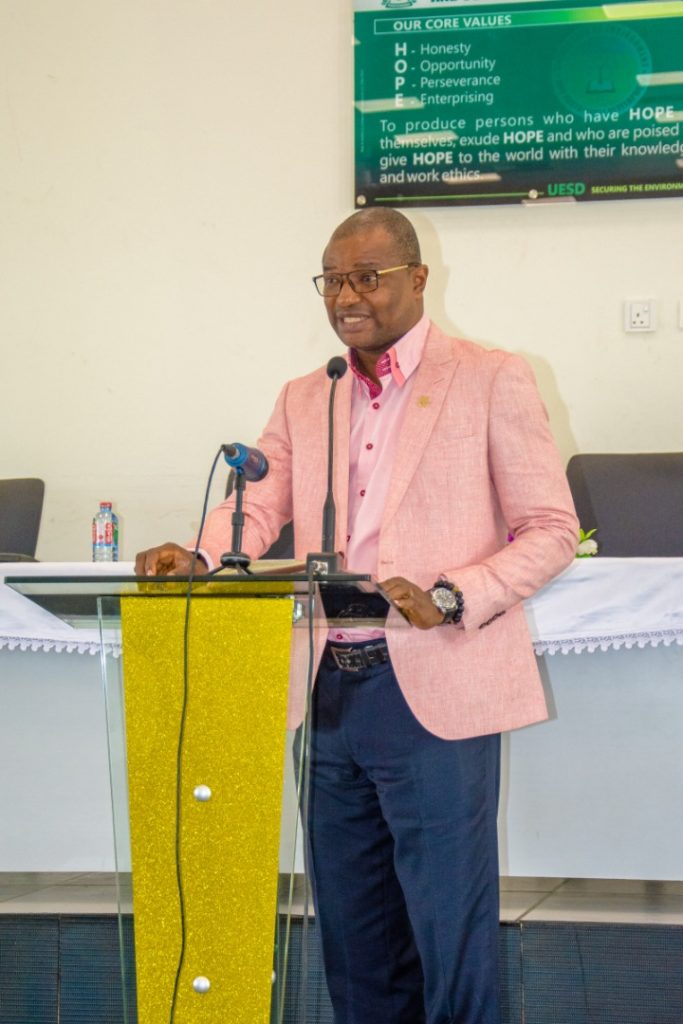
The journal which will be produced twice a year is envisaged to feature theoretical and practical research in Environment, Science, Energy, Agribusiness, Economics, Policy and Development; all within the context of sustainability. Prof. Nyarko-Sampson encouraged the Senior Members, particularly those in the Non-Teaching category, to take advantage of the opportunities the journal presents and get involved in research and publications.
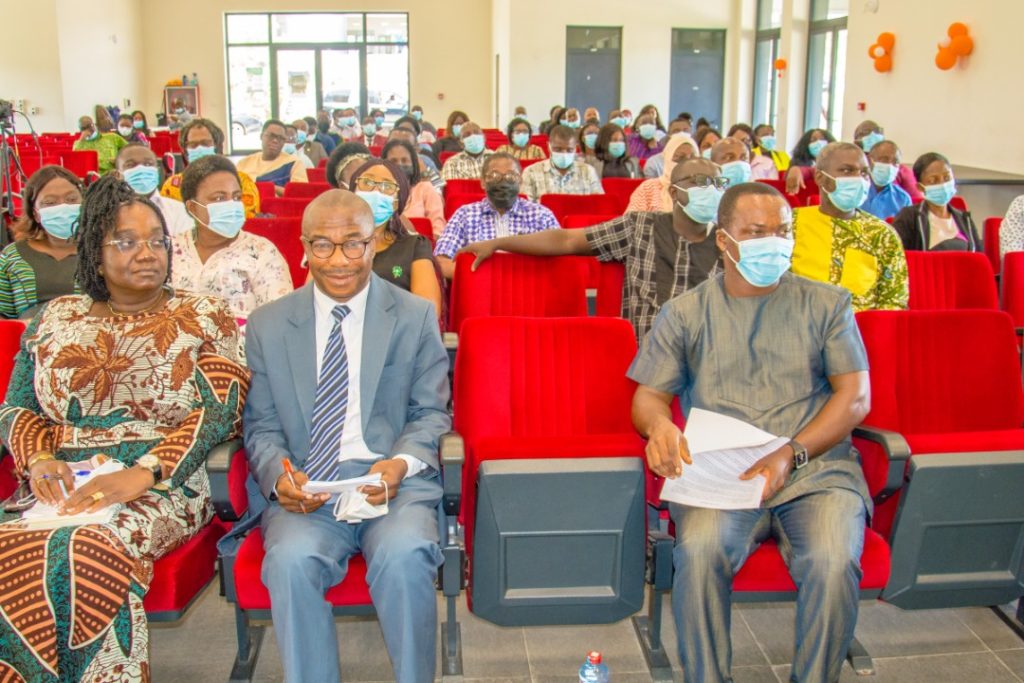
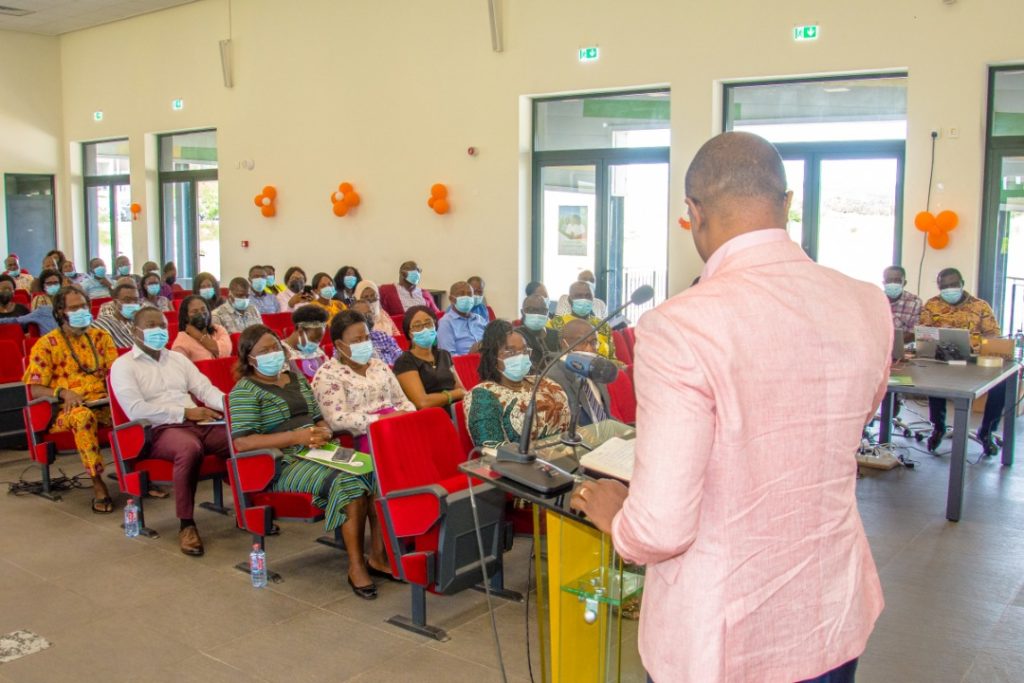
The Editor of the journal and Head of the Academic Planning and Quality Assurance Unit, Dr. Richard Amfo-Otu, explained that the purpose of the journal is to create a platform that highlights studies focusing on the interactions between environment and sustainable development issues.
He said, this is UESD’s way of contributing to the global efforts being made to achieve a balance between development needs and environment resources exploitation which are geared towards meeting, managing, preserving and maintaining the right degree of harmony with man and nature
He expressed the hope that the journal will also help increase access to information among academia, researchers, policy makers and implementers, to contribute to providing development interventions that are environmentally sound and sustainable. Adding that, the papers to be accepted will include full length research papers, survey papers, case studies/articles by industry experts and “novel technological breakthroughs.”
The Chairman for the event was Prof. Edward Wiafe Debrah, the acting Pro-Vice Chancellor of UESD. He lauded the efforts the Editorial team put in for the birthing of the journal.
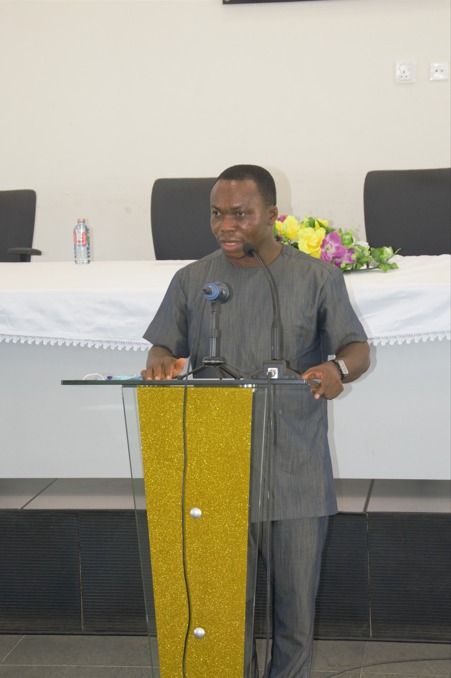
Prof. Wiafe Debrah, also a member of the Editorial Board revealed that the Board is more interested in encouraging and nurturing new and young authors to publish quality world-class articles. He dismissed fears of outright rejection of research papers by the Editorial Board without first providing opportunity for editing and restructuring as the case may be.
There were goodwill messages from the Registry and Faculty. The Registrar of the University, Mrs. Mary Abena Agyepong, and also a co-author of one of the papers published in the maiden edition of the Journal titled; “Women, ICT Usage and Structural Transformation in Ghana: A study of Manya and Yilo Krobo Municipalities’’ encouraged members to keep researching and publishing on topical issues relevant for the development and sustainability of Ghana and beyond. She stated that researching and publishing is man’s way of uncovering the hidden, saying,’’ publish or perish, choose to publish rather than perish.’’
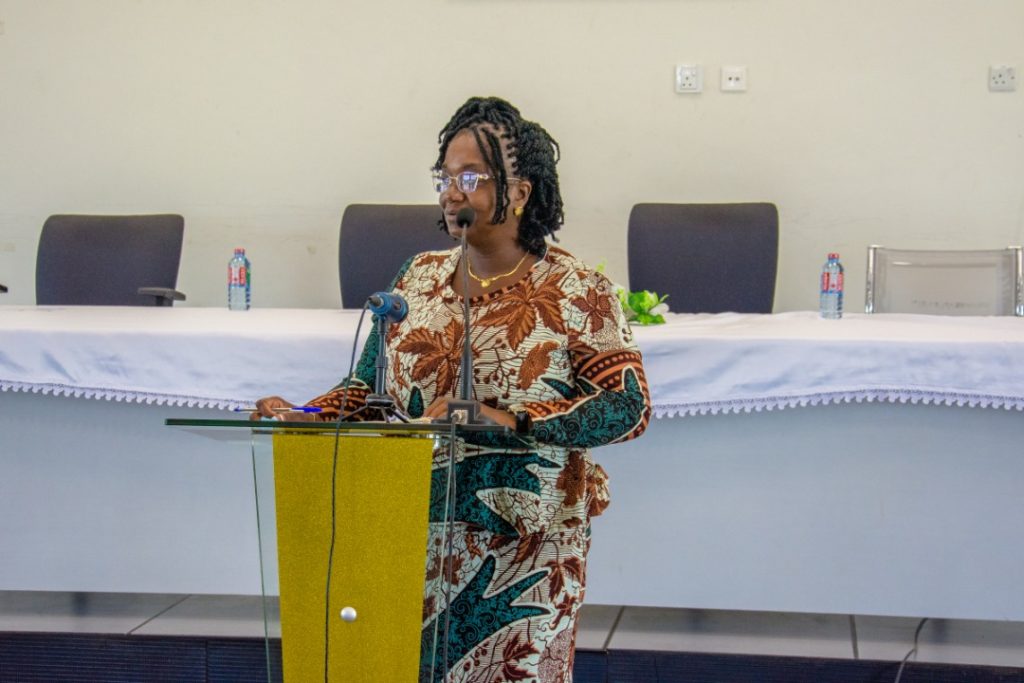
The Dean of the School of Sustainable Development (SSD) Prof. Amoah advised both Teaching and Non-Teaching staff, to make conscious efforts to publish their research findings and results instead of abandoning them to gather dust on their office shelves.
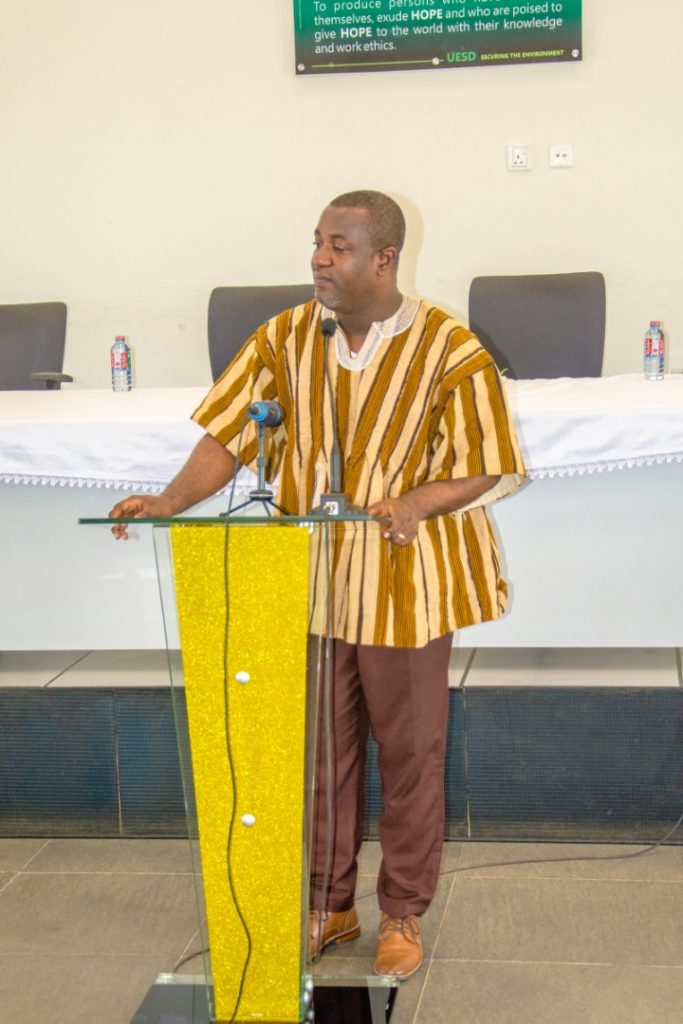
He explained that the findings from research once published will be available to the public and government agencies and these can be incorporated into government policy and design schemes for development. Prof. Amoah stressed on the need for managers of the journal to build and maintain high standards for it to be recognised within Ghana and beyond in order to enjoy the acclamation like other journals
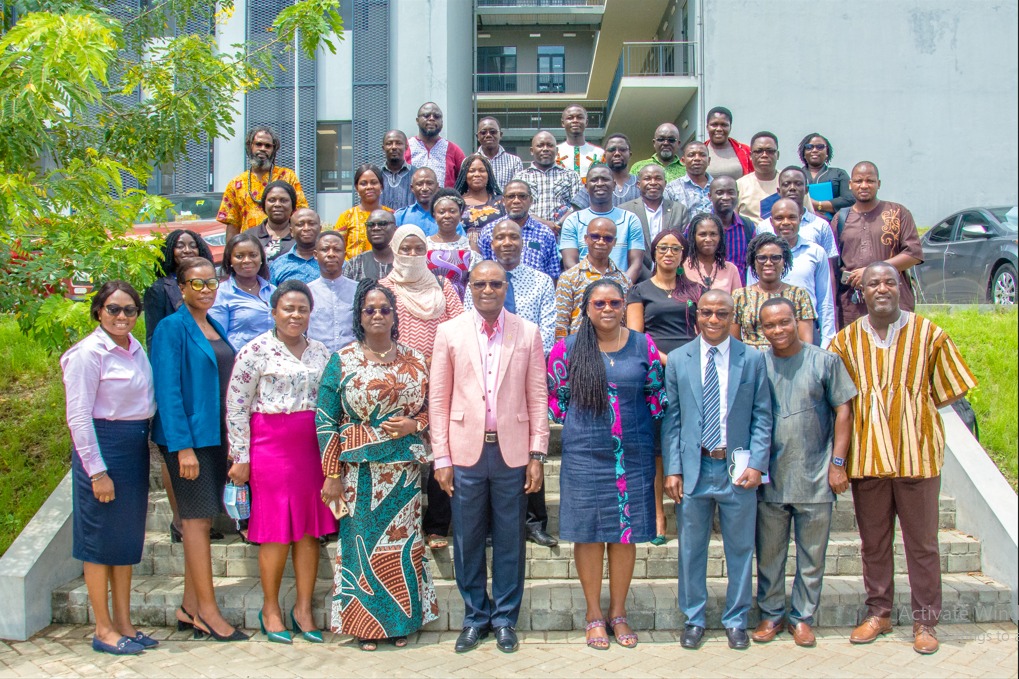
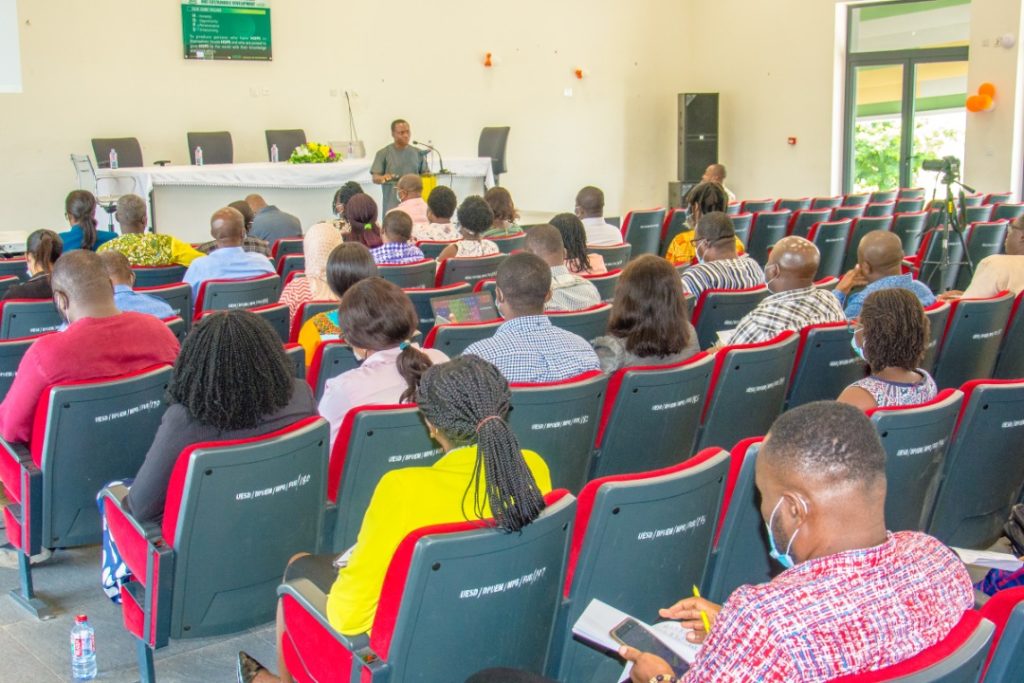
In his solidarity message, Dr. Nuworza Kugbey on behalf of the acting Dean of the School of Natural and Environmental Sciences (SNES) suggested the setting up of Peer Review Committees in the Schools to serve as first point of quality assurance before the papers are submitted to the Journal’s Editorial Board. This will significantly reduce the workload on the Journal’s Editorial Board and ultimately shorten the waiting period for review and final publication, “and also help to safeguard the reputation of the Journal,’’ he added.
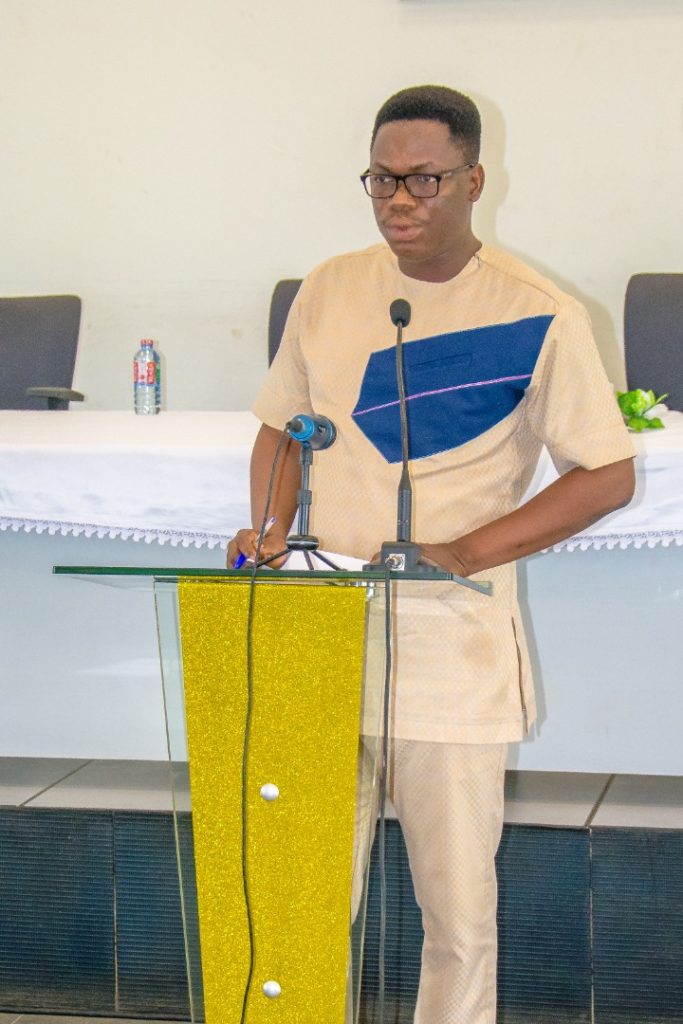
Dr. Nuworza Kugbey of SNES

